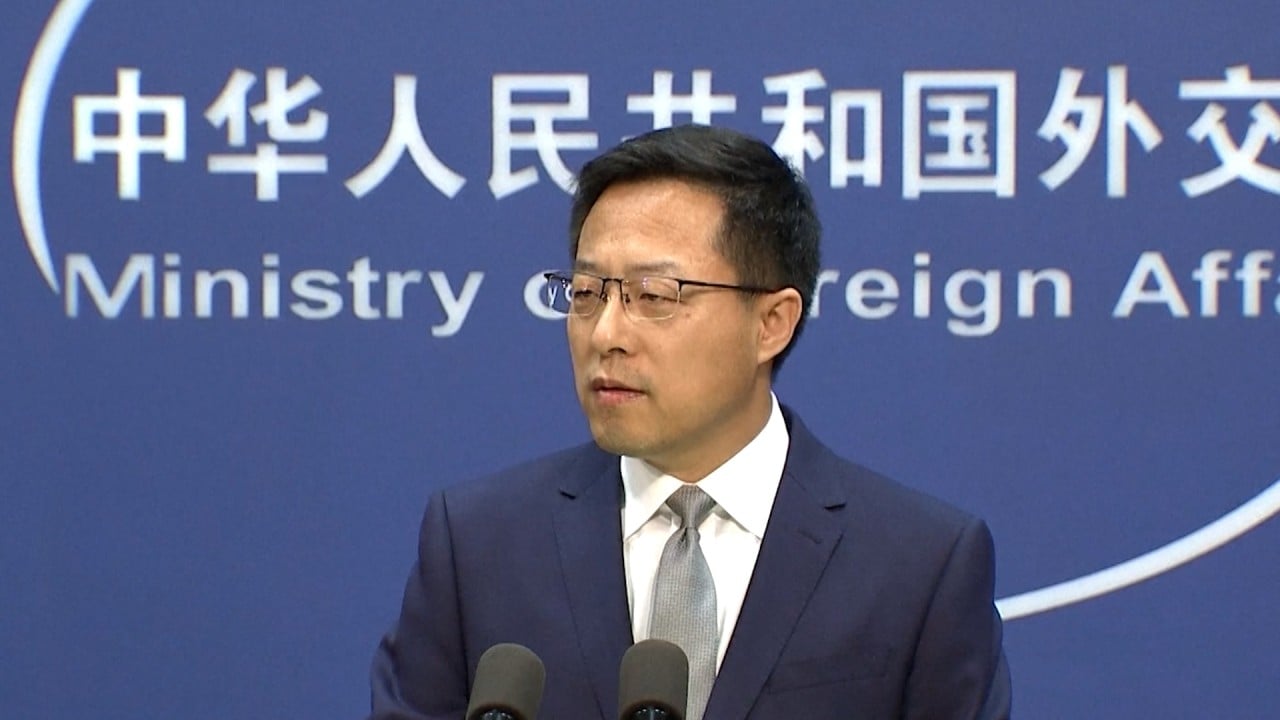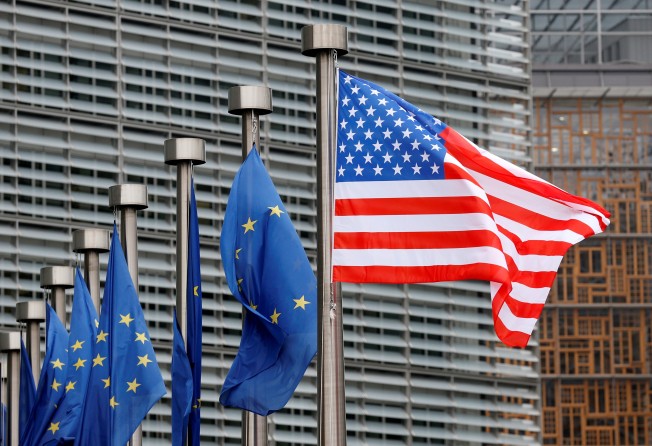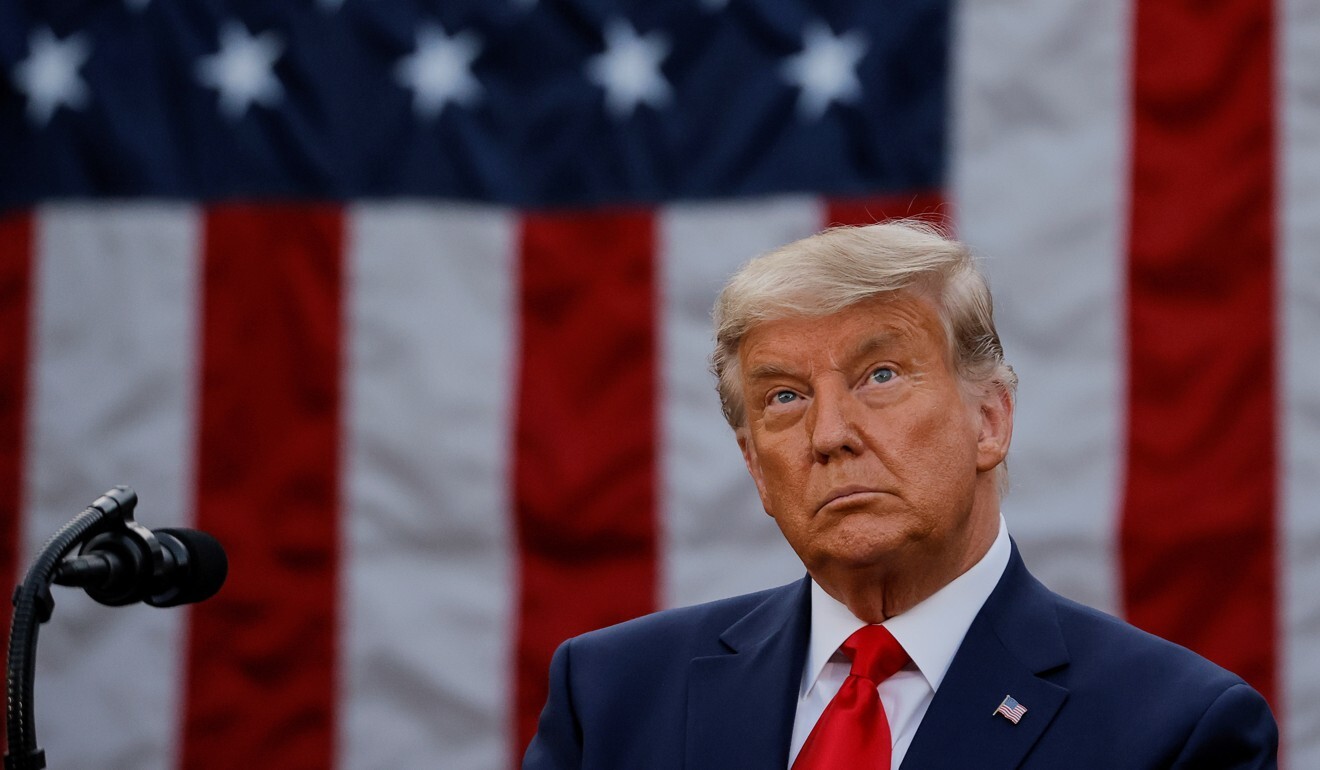
01:04
Cooperation ‘only right choice’ for China-US relationship says Beijing after reported Trump threat

US lawmakers are urging Washington and Europe to work more closely in confronting China on its political, economic and security threats.
In a report issued on Wednesday, Republicans of the Senate Foreign Relations Committee said the best strategy for the US to counter China with its “shifting” challenges is to partner with allies in Europe.
The approach spelled out in the report coincided with the one articulated by President-elect Joe Biden that favoured building a global coalition to force China into liberalising its economy.
The panel laid out six areas of challenges posed by China including its “malign” political influence, its influence on international organisations, its unfair trade and economic practices, advanced technologies, its overseas activities through the Belt and Road Initiative, and its growing influence in Africa.

01:04
Cooperation ‘only right choice’ for China-US relationship says Beijing after reported Trump threat
“The United States and Europe on the one hand, and China on the other, have very different visions of what the world should look like,” the report said.
“Neither side of the Atlantic can respond to the challenges China poses alone,” it said. Despite some differences, the US and Europe alliance is “the only way forward”.
Idaho Senator Jim Risch, a Republican and the chairman of the Senate Foreign Relations Committee, spoke Wednesday morning with his counterparts in Britain and Europe about the findings.
David McAllister, chair of the European Parliament’s Committee on Foreign Affairs, who spoke with Risch said “the transatlantic partners are facing similar challenges as regards China” including unfair trade practices, cybersecurity, disinformation and the pursuit for geopolitical and technological dominance.
“A new administration is promising a new start for the transatlantic relations,” said McAllister.
Biden said during his second presidential debate with US President Donald Trump in October that “we need to be having the rest of our friends with us saying to China, ‘These are the rules. You play by them, or you’re going to pay the price for not playing by them economically’.”
A representative for the Biden transition team did not immediately respond to a request seeking comment about the report.

03:29
RCEP: 15 Asia-Pacific countries sign world’s largest free-trade deal
China is one of the few issues that receive bipartisan support in US Congress. As the Senate potentially remains in the control of the Republicans for the first two years of the Biden administration, the report could serve as a blueprint for China policies.
Wednesday’s report provided a broad range of recommendations on academic exchanges, diplomacy, trade and technology.
The report called for a coordinated approach to protect certain industries, including dual-use items and key technologies, from military end users in China.
Coordinating export controls “should be at the top of the agenda”, according to the report. “This has become more urgent as China looks to ‘implement a unified export control system’ in legislation currently under consideration by the People’s Congress.”
Going beyond the US and Europe, the report urged advanced democracies to align and “help set baseline standards for technology infrastructure and development”. It listed Japan, Australia, India, Canada and New Zealand to come together to “help leverage economies of scale when competing with [People’s Republic of China] technologies and international standards-setting”.
The report suggested revoking China’s developing nation status under the World Trade Organization, a long-standing issue, and revising the WTO’s rules on industrial subsidies.
“China, the world’s second-largest economy, is taking advantage of this status to the detriment of other market players as well as truly developing nations,” the panel said.

The report also urged discussions among government officials in the US, Europe and other democratic countries to discuss China’s authoritarian influence within their respective countries and ways to push back.
The nations can use the model of the North Atlantic Treaty Organisation (Nato) Parliamentary Assembly to strengthen the newly-created Inter-Parliamentary Alliance on China, a coalition founded in June to address international order, human rights and trade fairness.
The report asked Europe to put aside differences and have soured relations with the US during the Trump administration including a trade dispute over government subsidies that pitted Boeing against Airbus.
Many have criticised the Trump administration for not enlisting help from US allies such as Europe in its fight against China over the recent years.
In a unilateral approach, Trump has shot down merger deals, sanctioned Chinese tech firms, imposed tariffs on hundreds of billions of dollars of Chinese imports.
Since last year, Secretary of State Mike Pompeo has started the effort to convince other countries to exclude Chinese 5G tech provider Huawei Technologies Co. from their infrastructure, saying the Chinese company can pose as a national security threat by handing over data to Beijing.
An increasing number of countries including Britain, Australia, New Zealand and Japan have banned Huawei Technologies Co. as a result.
On Wednesday, lawmakers in Canada took on China by passing a motion demanding Prime Minister Justin Trudeau decide within 30 days whether to ban Huawei Technologies Co. from the country’s wireless network.
But tariffs continue to be an unwelcome measure that many US economists described as a tax on American consumers. Biden echoed that in an interview with NPR in August that he believed that tariffs were as bad for the US as they were for China.
The Senate report on Wednesday did not include tariffs as a tool to combat China.